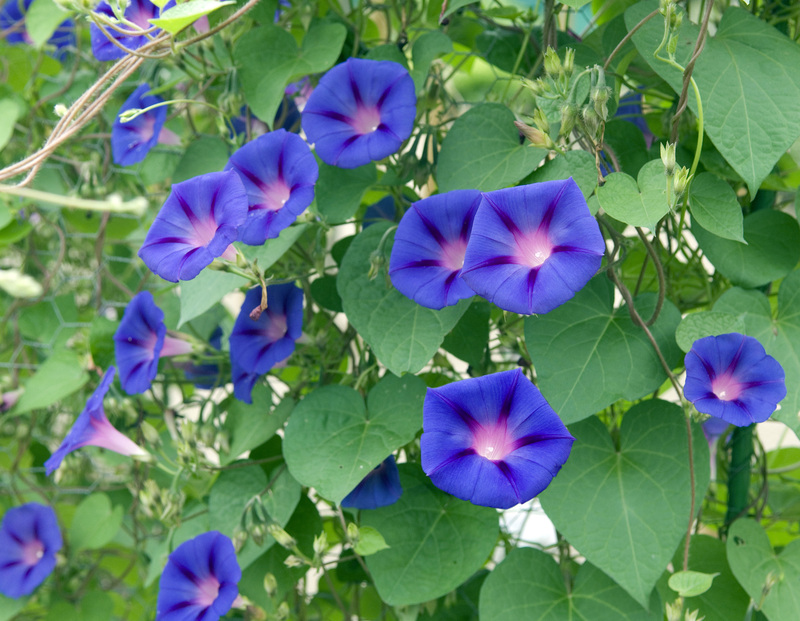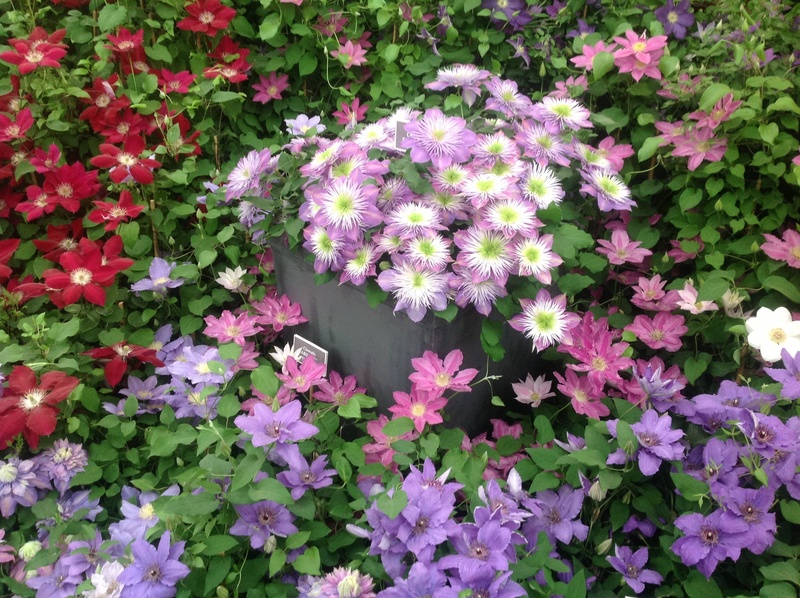The Garden's Secret Ingredient: Organic Waste Magic
Posted on 04/06/2025
The Garden's Secret Ingredient: Organic Waste Magic
Unveiling the Hidden Power of Organic Waste in Gardening
If you're passionate about cultivating a lush, thriving garden, you might already be aware that soil quality is everything. Yet, there's a transformative element that many gardeners overlook: organic waste. Often discarded as garbage, this humble material is, in truth, the secret ingredient that can infuse your garden with vitality and productivity. Welcome to the world of organic waste magic, where kitchen scraps and yard trimmings are transformed into the most valuable resource for your plants.

Understanding Organic Waste: Not Just Trash
Organic waste refers to any naturally decomposable matter derived from living things. In the context of gardening, it primarily includes:
- Kitchen leftovers (vegetable peels, fruit scraps, coffee grounds, eggshells)
- Grass clippings and leaves
- Wood chips and sawdust
- Spent flowers
- Animal manure (from herbivorous animals)
Instead of seeing these materials as "waste", consider them as a treasure trove for your garden's soil. The real magic happens when we unlock their full potential.
How Organic Waste Transforms Your Garden
The Science Behind Organic Waste Magic
Decomposition is the driving force behind turning organic waste into gardening gold. When you add organic matter to your garden, decomposers such as bacteria, fungi, and earthworms break it down. This natural recycling process releases essential nutrients back into the earth, enriching your soil with:
- Nitrogen: for leafy growth and healthy stems
- Phosphorus: essential for root development
- Potassium: boosts flowers and fruit production
Additionally, the process leads to softer, more aerated soil, locks in moisture, and supports beneficial soil organisms. Simply put, adding organic waste to your garden is like giving your plants their favorite food and improving their home environment at the same time!
Why Organic Waste Is the Garden's Secret Superhero
What makes organic waste compost so magical in your garden?
- Enriches Soil: It dramatically improves soil structure, texture, and fertility.
- Supports Microbial Life: Healthy microbial ecosystems fight soil diseases and help plants absorb nutrients more efficiently.
- Reduces the Need for Chemical Inputs: Organic waste reduces reliance on synthetic fertilizers and pesticides.
- Saves You Money: It turns would-be trash into valuable, free fertilizer.
- Protects the Environment: Composting organic waste keeps methane-producing materials out of landfills, mitigating your household's carbon footprint.
Ways to Harness Organic Waste Magic in Your Garden
Composting: The Classic Method
The most common way to channel the magical properties of organic waste is composting. Composting is the controlled process of breaking down organic matter into humus, a dark, nutrient-dense material that every gardener cherishes. Here's why composting works wonders:
- Nutrient Cycling: Compost returns important nutrients to the soil ecosystem.
- Water Retention: Humus enhances your soil's ability to hold moisture, helping you conserve water and keep plants hydrated.
- Pest & Disease Suppression: Healthy compost supports robust plants that are naturally more resistant to pests and diseases.
How to Start Composting at Home
Embarking on your composting journey is straightforward:
- Pick a Bin: Choose a compost bin or build a simple pile in your backyard.
- Add 'Greens' and 'Browns':
- Greens: Kitchen scraps, coffee grounds, fresh grass clippings (provide nitrogen)
- Browns: Dead leaves, straw, cardboard, sawdust (provide carbon)
- Keep it Moist: Compost should be as damp as a wrung-out sponge.
- Aerate Often: Turn the pile every week or two to supply oxygen, speeding decomposition.
Within a few months, you'll witness the organic waste magic as your kitchen and yard waste turn into nutrient-packed soil amendment!
Vermicomposting: The Worm's Role in Organic Waste Magic
Another enchanted avenue for transforming organic waste is vermicomposting, or worm composting. Here, red wiggler worms devour your food scraps, producing "castings"--an exceptionally rich, odorless natural fertilizer. Vermicomposting is ideal for small spaces and even apartments, as it can be done in compact bins indoors.
Organic Waste Mulching: A Simple Gardening Hack
Don't want to wait for compost? Try mulching! Spreading organic waste like shredded leaves, grass clippings, or even kitchen trimmings directly on top of garden soil offers immediate benefits:
- Suppresses Weeds: Blocks sunlight and prevents weed growth
- Conserves Moisture: Reduces evaporation
- Improves Soil Over Time: As the mulch breaks down, it feeds the topsoil layer
This organic gardening secret not only recycles waste but saves you time on weeding and watering.
Common Sources of Organic Waste for Your Garden
Not sure what's safe to add to your garden? Here's a list of organic waste items you can confidently use:
- Vegetable and fruit peels
- Coffee grounds and paper filters
- Tea bags (not synthetic)
- Eggshells (crushed)
- Nutshells (except walnut)
- Yard clippings
- Leaves
- Twigs and small branches (chopped)
- Shredded newspaper and uncoated cardboard
- Animal manure (from herbivores)
Pro Tip: Avoid adding meat, dairy, fats, diseased plants, and pet waste to your compost or mulch, as these can attract pests or introduce pathogens.
Tips to Maximize Your Organic Waste's Magical Effects
- Chop it up: Cut larger pieces into smaller bits to speed decomposition.
- Balance 'greens' and 'browns': Aim for a rough mix of one part green (nitrogen) to three parts brown (carbon).
- Keep your compost moist: Dry compost will not break down as efficiently.
- Aerate regularly: Oxygen is key for healthy, odor-free breakdown of organic waste.
- Monitor temperature: Healthy compost piles heat up as microbes work; this also kills weed seeds and pathogens.
Signs Your Compost Is Working Its Magic
- Warmth emanating from the pile
- A pleasant, earthy smell (not pungent or rotten)
- Organic matter breaking down and becoming unrecognizable
Beyond Compost: Other Ways to Use Organic Waste in the Garden
Green Manuring
Green manuring involves growing cover crops such as clover, rye, or vetch, and then turning them into the soil. These plants split the difference between living mulch and compost, capturing nutrients and converting them directly into soil organic matter when tilled under. It's another form of organic waste magic that works in harmony with nature's rhythms.
Bokashi: Fermentation-based Organic Waste Recycling
Bokashi is a Japanese technique that uses effective microorganisms to ferment kitchen scraps. Unlike traditional composting, Bokashi can process meat, dairy, and bread. Once fermented, the material "pickles" down and can be buried to break down rapidly, providing another pathway for organic waste transformation.
Environmental and Economic Benefits of Using Organic Waste
- Reduces landfill waste: Up to 40% of the average household's trash is organic waste that could be composted.
- Lowers greenhouse gases: Decomposing waste in landfills produces methane, a potent greenhouse gas. Composting at home eliminates this problem.
- Saves money: Less store-bought fertilizer and soil amendments means more cash left in your pocket!
- Promotes biodiversity: Healthy soil supports a web of life, from microbes to insects to birds.
Organic Waste Magic: Common Questions Answered
Is it safe to use all kitchen waste in compost?
No, not all kitchen waste is suitable. Avoid meat, fats, and dairy, as well as anything treated with chemicals. Stick to fruit and vegetable scraps for best results.
How long does it take to turn organic waste into compost?
With regular turning and the right mix of materials, compost can be ready in 2-4 months during the warmer months. Larger, less-managed piles may take six months to a year.
Does composting organic waste smell bad?
Healthy compost smells like earth after rain! If it stinks, balance your carbon (browns) and nitrogen (greens), and aerate the pile.
Can I use organic waste directly on my garden?
Some materials can be used directly as mulch, like grass clippings or autumn leaves. For kitchen scraps, let them decompose first to avoid attracting pests.

Bringing the Magic Home: Your Organic Garden Awaits
Every apple core, grass clipping, and wilted lettuce leaf is packed with untapped power. By embracing organic waste magic in your garden, you're not only enriching your plants, but also contributing to a greener planet and a sustainable lifestyle.
- Start a compost bin today.
- Use organic waste as mulch to suppress weeds and boost soil fertility.
- Experiment with vermicomposting or Bokashi for small-space solutions.
- Grow cover crops and embrace green manuring.
Remember: The key to a flourishing, resilient garden lies not in expensive chemicals or fertilizers, but in an ancient principle: returning nature's bounty to the soil. With the secret ingredient of organic waste magic, your garden will surprise and reward you in ways you never imagined!
Final Thoughts: Make Organic Waste the Heart of Your Garden
Turning waste into wealth is easier than ever. By integrating organic waste management into your daily routine, you unlock a cycle of abundance for your backyard ecosystem. The results are visible in richer soil, healthier plants, and a more vibrant, self-sustaining garden. It's time to let the secret out: organic waste magic is the ingredient your garden has been waiting for.
Latest Posts
Privacy Upgrade: Explore 9 Fast-Growing Hedge Options
Discovering Joy in a Kid-Friendly Garden Design
Winter Fortress: Ensuring Garden Plant Health



